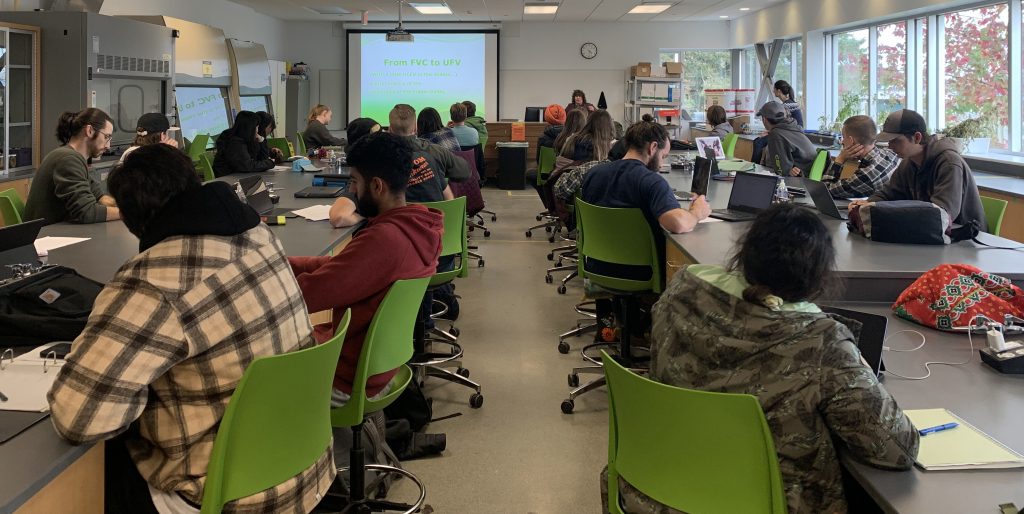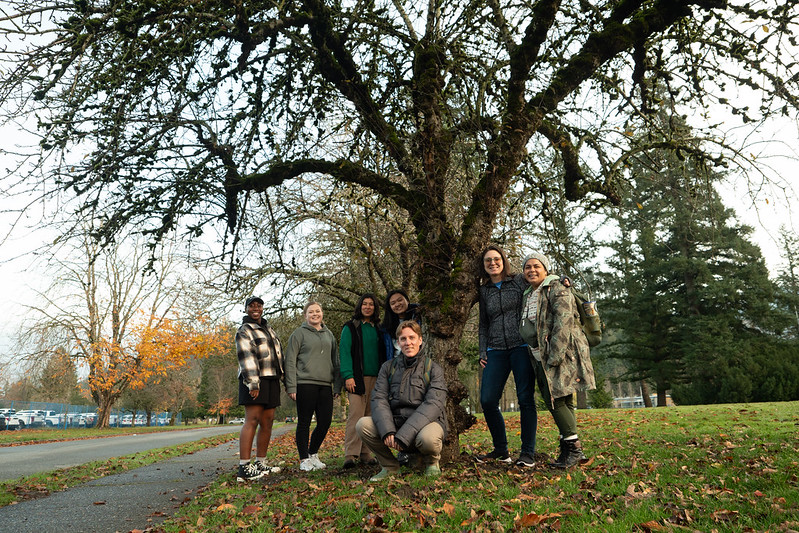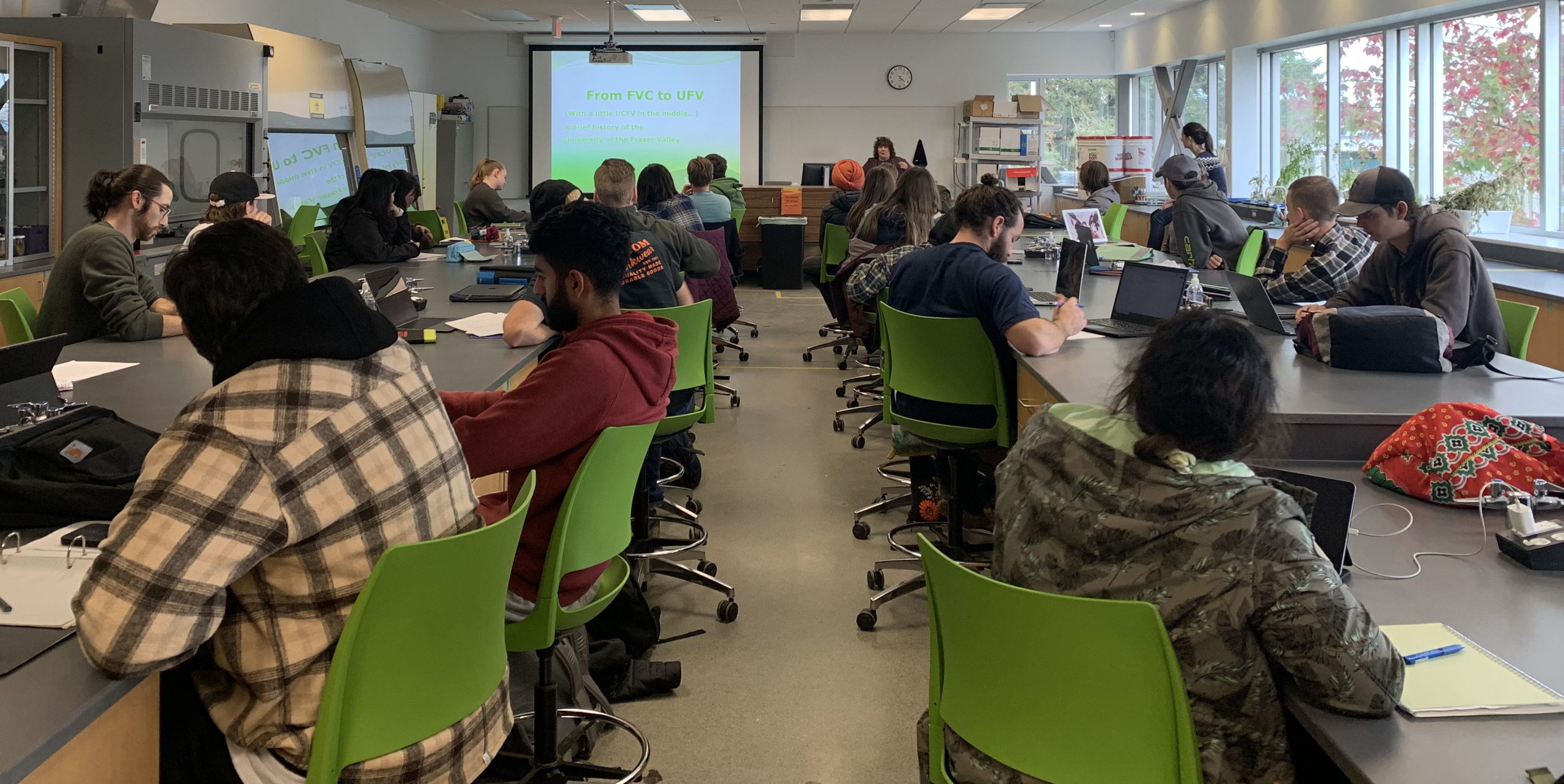History in the Making project looks at UFV’s first 50 years

Students from a variety of disciplines had the opportunity to bring UFV’s history to life recently through History in the Making, a special project celebrating UFV’s 50th anniversary.
They will be sharing the results of their research on Friday, March 1, at a poster and photography exhibit in Evered Hall on the Abbotsford campus. Students and faculty involved in the project will be on site from 11 am to 1 pm to discuss their work. The poster and photography exhibit will stay open until 4 pm.
Participating disciplines include Political Science, Communications, Computer Information Systems, Agriculture, Arts, Sociology, Geography, Media Arts, and Visual Arts.
The History in the Making: Celebrating UFV’s 50th Anniversary project explores the history and legacy of UFV as a vibrant hub of civil society and serves to cultivate a greater sense of belonging among students. Its multi-disciplinary framework examines the economic, social, and cultural impacts of UFV over time from a unique disciplinary perspective.
The project was conducted in partnership with the Community Engagement, UFV International, and Institutional Research offices, and in collaboration with community partners, including the City of Abbotsford.
UFV’s Centre for Experiential and Career Education (CECE) recently received funding through Co-operative Education and Work-Integrated Learning Canada (CEWIL) to support this and one other community engagement projects under the umbrella of work-integrated learning.
Students from Professor Lauren Erland’s Agriculture 323 Fruit Production class learned about the history of the UFV Chilliwack campus through testing and development of different propagation strategies to conserve heritage apple trees. In addition to attempting to preserve the trees, they learned about the different land uses of the site, from its use by the Stó:lō people through to its time as a farm, and its later appropriation by the Canadian government for use as Canadian Forces Base Chilliwack, through to what it is now known as the Chilliwack campus at the Canada Education Park.

Introductory sociology students participated in a component of the project they titled Sociology of Community at UFV: Celebrating Past, Present, and Future.
Including professor Amber Gazso, the research team consisted of Taylor Miller, Emily Povey, Rebecca Smith, Tushar Sharma, and Riyana Swarna. Together, they conducted a thematic analysis of Skookum, UFV’s alumni magazine, to explore how community engagement as a key commitment of UFV’s past entered the present. Their primary questions of interest included: What is community engagement at UFV? What is community-based research at UFV? And are there shifts in the meaning and practice of both between 2010 and 2022?
They discovered that community engagement at UFV is represented by four interconnected themes in Skookum: the global is local; land, space, and place; learning, leading, and change-making; and cultures in conversation, skills in practice.
Meanwhile, community-based research at UFV is illustrated by the intersecting themes of: remembering, honouring, growing; learning by doing; and impacts that matter. Considering these themes and their interconnections, the team concluded that creating knowledge together and bringing about change together are generational values and practices. Community engagement as a key commitment of UFV’s past has entered the present because at UFV everyone is a learner, a leader, and a doer.
Computing student Akarshi Sharma worked on a project analyzing the UFV Today blog.
“I learned about the BC Labour Market Outlook forecast data that WorkBC posts every year from my professor, Dr. Russell Campbell. We were curious to see if we could use any of UFV’s data to see how the university prepares students for industry by mapping data from the UFV Today blog and seeing where these skills were shown,” explains Sharma.
“We found that over the years students have been working hard and demonstrating many of these skills. Working on a project like this was a bit challenging and I had to explore a lot of areas in computer science that I hadn’t yet explored. The support I got from Dr. Campbell was amazing; he taught me a lot especially when it comes to data visualization. With this field, it’s really important to try to implement what you’ve learned in classes, and this project really helped me get out of my comfort zone and work on something beneficial.”
That is exactly the kind of enriching student experience that Centre for Experiential and Career Education aspires to provide to UFV students.
“Being a part of these projects is a strategic move in elevating the real-life application of the work UFV students are doing in the classroom,” says CECE director Candace Stewart-Smith.





